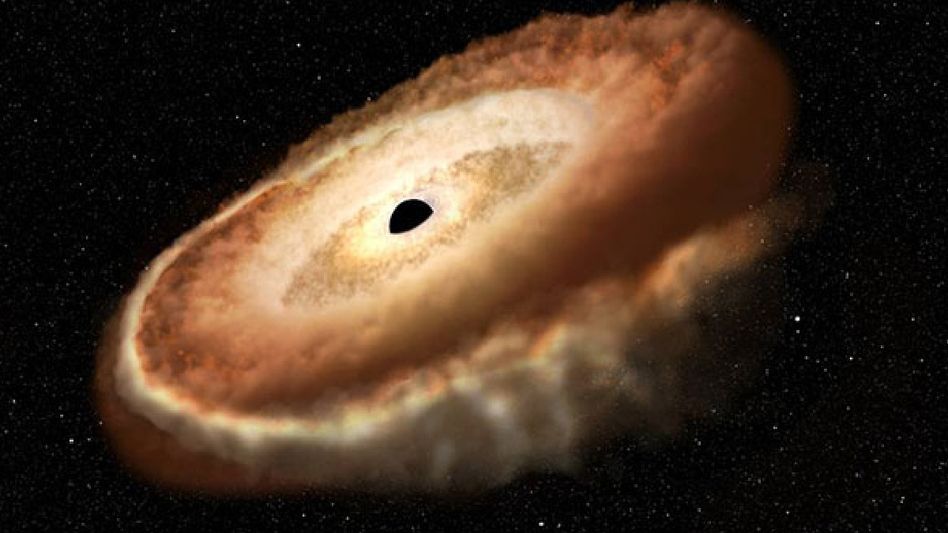IIT-Guwahati and multi-institutional team uncover intriguing X-ray characteristics in newly discovered black hole binary system
A collaborative research team, including scientists from the Indian Institute of Technology Guwahati, UR Rao Satellite Centre (ISRO), University of Mumbai, and Tata Institute of Fundamental Research, has conducted an in-depth study of a newly discovered black hole binary system, Swift J1727.8-1613. The investigation utilized data from India's space-based observatory, AstroSat.

A collaborative research team, including scientists from the Indian Institute of Technology Guwahati, UR Rao Satellite Centre (ISRO), University of Mumbai, and Tata Institute of Fundamental Research, has conducted an in-depth study of a newly discovered black hole binary system, Swift J1727.8-1613. The investigation utilized data from India's space-based observatory, AstroSat.
The team uncovered fascinating X-ray characteristics that could shed light on the enigmatic nature of black holes. Direct observation of black holes is inherently challenging as they do not emit detectable radiation. However, black hole binaries, where a black hole is coupled with another object like a normal star, present unique opportunities for exploration.
In these binary systems, the black hole's immense gravitational pull draws material from its companion star, creating an accretion disk of gas and dust spiraling into the black hole. According to a press release from IIT Guwahati, as the material in the accretion disk is drawn closer to the black hole, it heats up to extremely high temperatures—often millions of degrees—and emits X-rays. These X-rays can be captured by space-based telescopes, offering valuable insights into the black hole's properties.
Using AstroSat, India's premier space observatory equipped to observe the universe in multiple wavelengths including X-rays, the researchers focused on the black hole binary system Swift J1727.8-1613. AstroSat's capabilities make it particularly suited for studying high-energy phenomena such as black hole binaries.
The study revealed Quasi-periodic Oscillations (QPOs) in the X-ray emissions from the accretion disk of Swift J1727.8-1613. QPOs are the flickering of X-ray light at specific frequencies from astronomical objects. This discovery of QPOs provides significant clues about the dynamic processes occurring near the black hole, enhancing our understanding of these mysterious cosmic entities.
Also read: Manipur looking for peace for a year, should be given priority: RSS chief Mohan Bhagwat
Copyright©2025 Living Media India Limited. For reprint rights: Syndications Today









